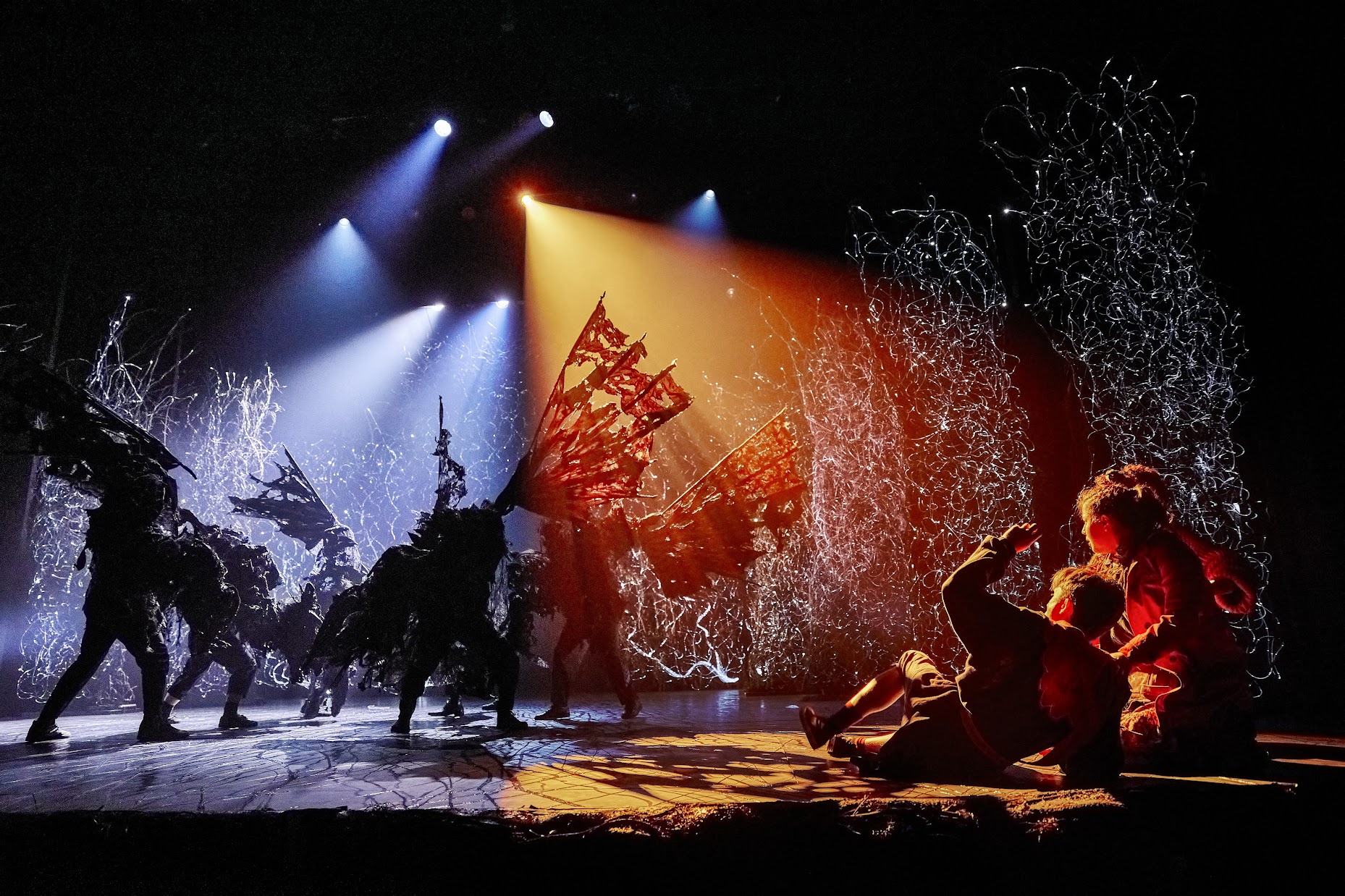
Culture writer Ilina Jha reviews The Alexandra’s adaptation of Neil Gaiman’s fantasy novel, praising the play’s impressive set and engaging production techniques
Neil Gaiman – the man, the myth, the legend – is known for bringing all sorts of weird and wonderful stories into our lives, and his award-winning novel The Ocean at the End of the Lane (2013) is no different. Now, it’s been brought to life on the stage and is currently playing at The Alexandra Theatre in Birmingham.
Adapted by Joel Horwood and directed by Katy Rudd, The Ocean at the End of the Lane begins with an unnamed man (Trevor Fox) returning to his childhood home. But soon man turns into boy as he remembers the events of his childhood. We follow these memories as the Boy (Keir Ogilvy) navigates difficulties with his father (Trevor Fox) and meets the mysterious Hempstock family, drawing him into a world of magic that is both very wonderful and very dangerous.
Forest tree scenery that both scares and excites provides the perfect setting for the play: a place that is both real and seemingly unreal
Forests are entities that exist in the real world but are often the sites of magic and mystery in stories, from the Harry Potter series to virtually every Disney Princess film. Forest space in The Ocean at the End of the Lane is no different. Forest tree scenery that both scares and excites provides the perfect setting for the play: a place that is both real and seemingly unreal, an ordinary-looking place that holds deep magic. It encapsulates the issue of ‘the edge’ that is referred to throughout the play – a blurring of the lines between one world and the next, between what is experienced as the normal, everyday world and what is considered bizarre and magical.
Lettie Hempstock (Millie Hikasa) is a wild new friend for the Boy and a whirlwind force in this play who never ceases to surprise us. She combines a childish longing to play with impressive powers that seemingly only the Hempstock family can wield. However, don’t be deceived into thinking this is a happy-go-lucky adventurer; Lettie’s touching revelations of her loneliness and sorrow are infrequent, but all the more powerful for being so. Finty Williams puts in a stellar performance of Old Mrs Hempstock – a character all the more remarkable for insisting on the descriptive ‘Old’ because, as she says, ‘I was here first!’ She has some of the funniest lines in the play, as well as some of the most wise. Old Mrs Hempstock gives the impression of having been around from the dawn of existence, and who will continue to be around for a long, long time; this impression is made all the stronger with her constant presence throughout the play. She is there at the start and end with the adult Boy, there throughout his childhood, and is the last character onstage at the end.
Charlie Brooks gives a great performance of Ursula, capturing perfectly the character’s cruelty and charming façade
Charlie Brooks gives a great performance of Ursula, capturing perfectly the character’s cruelty and charming façade. Having the same actor play both the adult Boy and his father is a fascinating choice, especially given (or perhaps because of) the difficult relationship between the two in the course of the play. During their arguments, Fox is able to shout with such rage and power that it left me feeling frightened of him. Ogilvy gave a convincing performance of the Boy’s inner struggle and navigation of a new, frightening magical world, although at points I felt rather frustrated with the character’s continued stupidity.
If there is one defining feature of this production, then it is movement. Movement permeates every atom of this show’s being, and is what makes it successful. The ensemble cast don’t just move props; they became part of the scene, listening and moving as principal characters move and speak. From the movement of Lettie as she fights spirits; to the handling of giant, sinister puppets; to the ensemble cast members carrying and manipulating the characters’ movements. Stylised, meaningful movement is foregrounded in this production. This combines seamlessly with the impressive lighting and sound effects, including total blackout moments and noises that vibrate through your body to produce an intense theatrical experience that leaves you shaking in your seat. It is the superb utilisation of these elements that makes the play such a successful theatrical adaption of Gaiman’s beloved book.
Thrilling, frightening, and emotional – The Ocean at the End of the Lane is a tour-de-force and one I will certainly not be forgetting any time soon.
Rating: 4.5/5
Liked this? Read more from Redbrick Culture below!
Comments